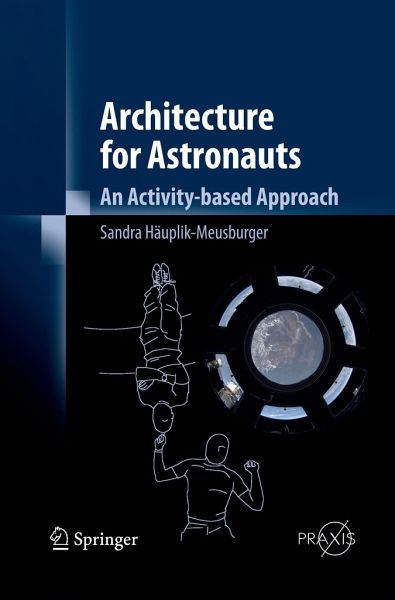
Architecture for Astronauts
An Activity-based Approach
Versandkostenfrei!
Versandfertig in 6-10 Tagen
211,99 €
inkl. MwSt.
Weitere Ausgaben:

PAYBACK Punkte
106 °P sammeln!
Living and working in extra-terrestrial habitats means being potentially vulnerable to very harsh environmental, social, and psychological conditions. With the stringent technical specifications for launch vehicles and transport into space, a very tight framework for the creation of habitable space is set. These constraints result in a very demanding "partnership" between the habitat and the inhabitant.This book is the result of researching the interface between people, space and objects in an extra-terrestrial environment. The evaluation of extra-terrestrial habitats in comparison to the user...
Living and working in extra-terrestrial habitats means being potentially vulnerable to very harsh environmental, social, and psychological conditions. With the stringent technical specifications for launch vehicles and transport into space, a very tight framework for the creation of habitable space is set. These constraints result in a very demanding "partnership" between the habitat and the inhabitant.
This book is the result of researching the interface between people, space and objects in an extra-terrestrial environment. The evaluation of extra-terrestrial habitats in comparison to the user's perspective leads to a new framework, comparing these buildings from the viewpoint of human activity. It can be used as reference or as conceptual framework for the purpose of evaluation. It also summarizes relevant human-related design directions. The work is addressed to architects and designers as well as engineers.
This book is the result of researching the interface between people, space and objects in an extra-terrestrial environment. The evaluation of extra-terrestrial habitats in comparison to the user's perspective leads to a new framework, comparing these buildings from the viewpoint of human activity. It can be used as reference or as conceptual framework for the purpose of evaluation. It also summarizes relevant human-related design directions. The work is addressed to architects and designers as well as engineers.




